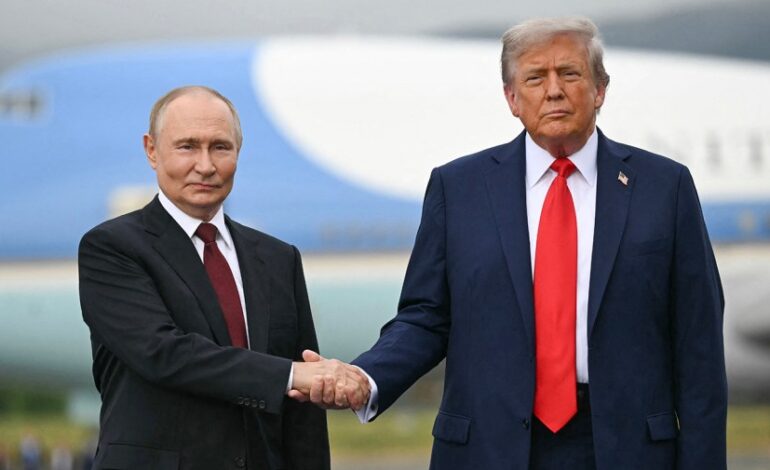Russia’s Security Commitments to Ukraine Draw Skepticism

U.S. officials have raised concerns about the sincerity of Russia’s recent security commitments regarding Ukraine. Following a summit between President Donald Trump and President Vladimir Putin in Alaska earlier this month, reports indicated that Russia was prepared to offer “NATO-like” security guarantees as part of a broader peace agreement. However, just ten days later, these assurances appear increasingly uncertain, as Russia is now insisting on an effective veto over Ukraine’s defense agreements with NATO.
The initial optimism came after a series of discussions that seemed to signal a willingness from Moscow to engage constructively in peace negotiations. According to U.S. officials, the proposed security guarantees were seen as a significant concession from Russia, potentially paving the way for a resolution to the ongoing conflict in Ukraine.
Yet, subsequent developments have cast doubt on these claims. Russia’s demand for a veto power raises critical questions about the nature of any potential peace deal. The insistence on controlling Ukraine’s security arrangements contradicts the very essence of the sovereignty that Ukraine has sought to maintain throughout this conflict.
U.S. Secretary of State Antony Blinken emphasized the importance of Ukraine’s autonomy in determining its own security partnerships. “Ukraine must have the freedom to choose its own alliances without external interference,” Blinken stated during a press briefing. His comments reflect a broader sentiment within the U.S. administration that Russia cannot dictate terms to Ukraine or undermine its sovereignty.
The evolving dynamics of this situation highlight the complexities involved in negotiating peace in the region. If Russia continues to assert control over Ukraine’s security policy, it could undermine any progress made at the summit and lead to further escalation of tensions. While the initial discussions provided a glimmer of hope, the current demands from Russia suggest that significant obstacles remain in the path toward a comprehensive peace deal.
As the situation develops, U.S. officials are closely monitoring Russia’s actions and rhetoric. The commitment to NATO-like security guarantees, once seen as a potential breakthrough, now appears to be a point of contention that could hinder efforts to stabilize Ukraine. Moving forward, it will be crucial for both the U.S. and its allies to navigate these challenges while advocating for Ukraine’s right to determine its own security arrangements without external coercion.
The international community continues to watch closely, with implications for regional security and the balance of power in Eastern Europe. As negotiations unfold, the emphasis will remain on ensuring a transparent dialogue that respects the sovereignty of Ukraine and addresses the underlying issues of the ongoing conflict.






